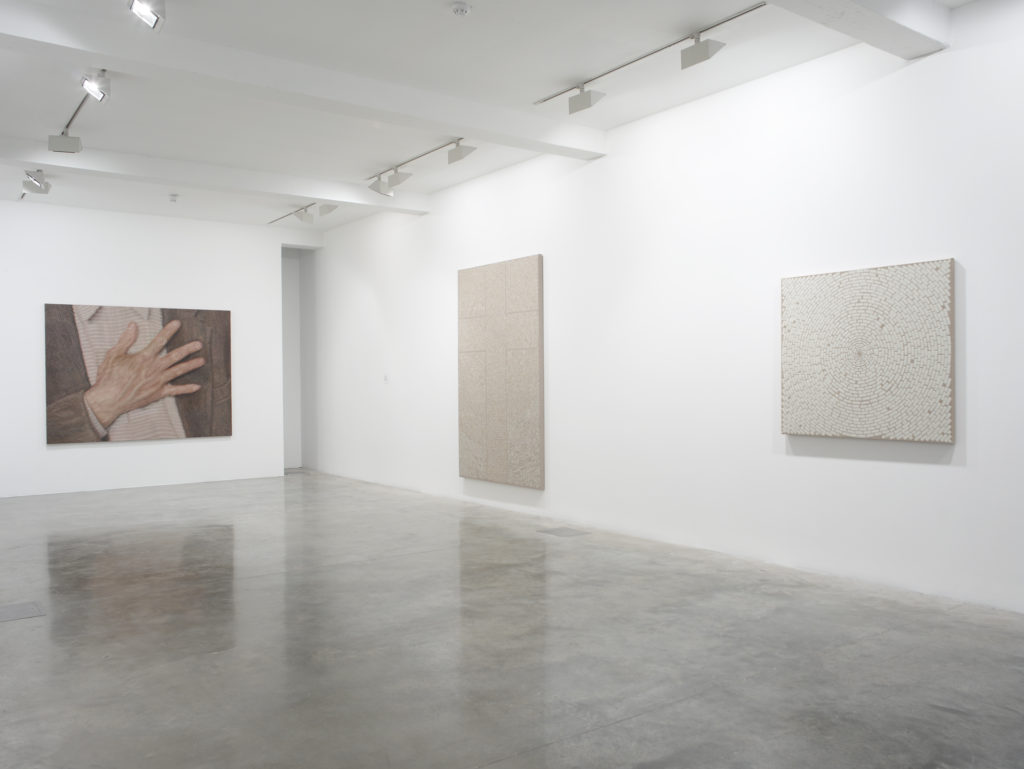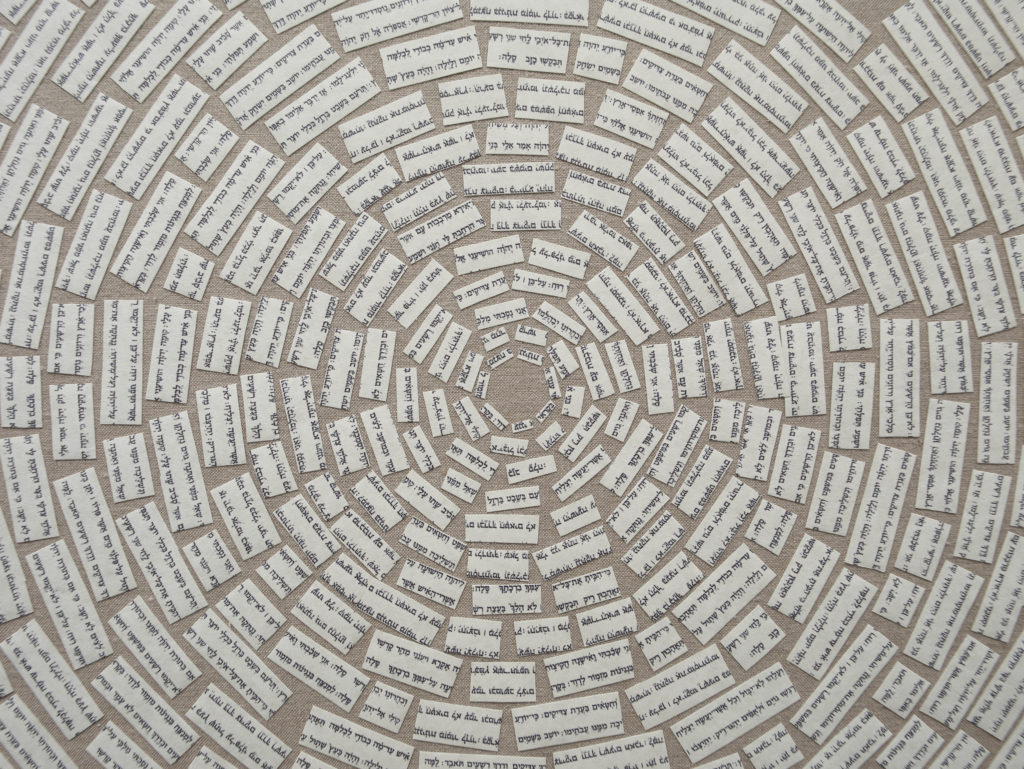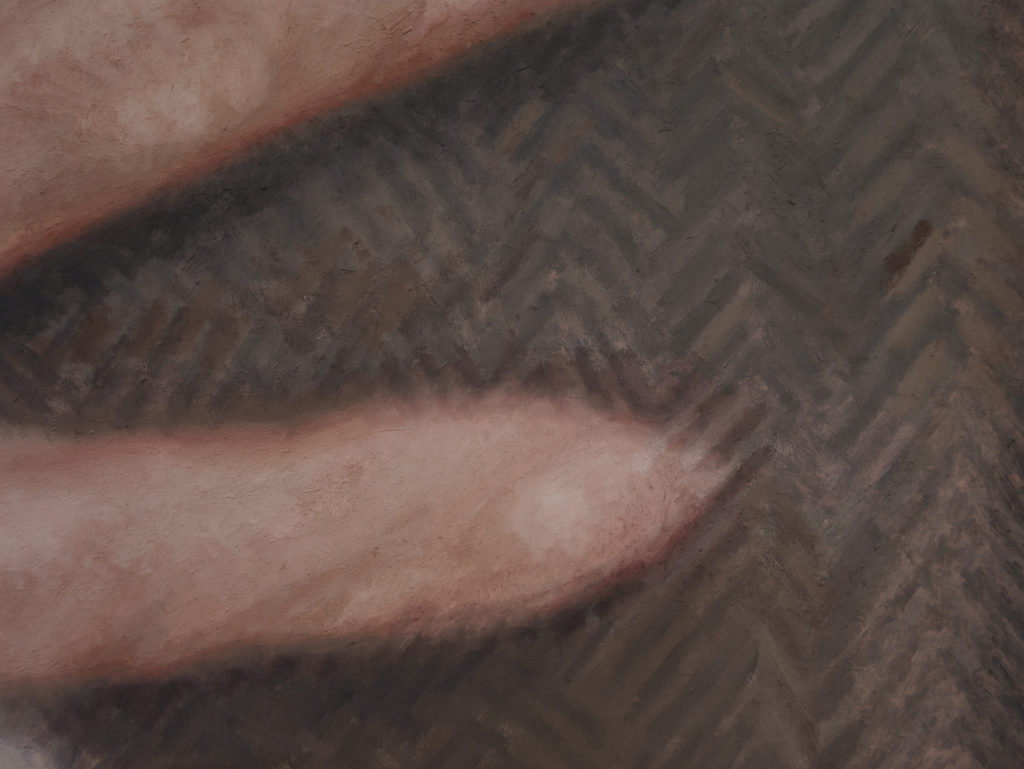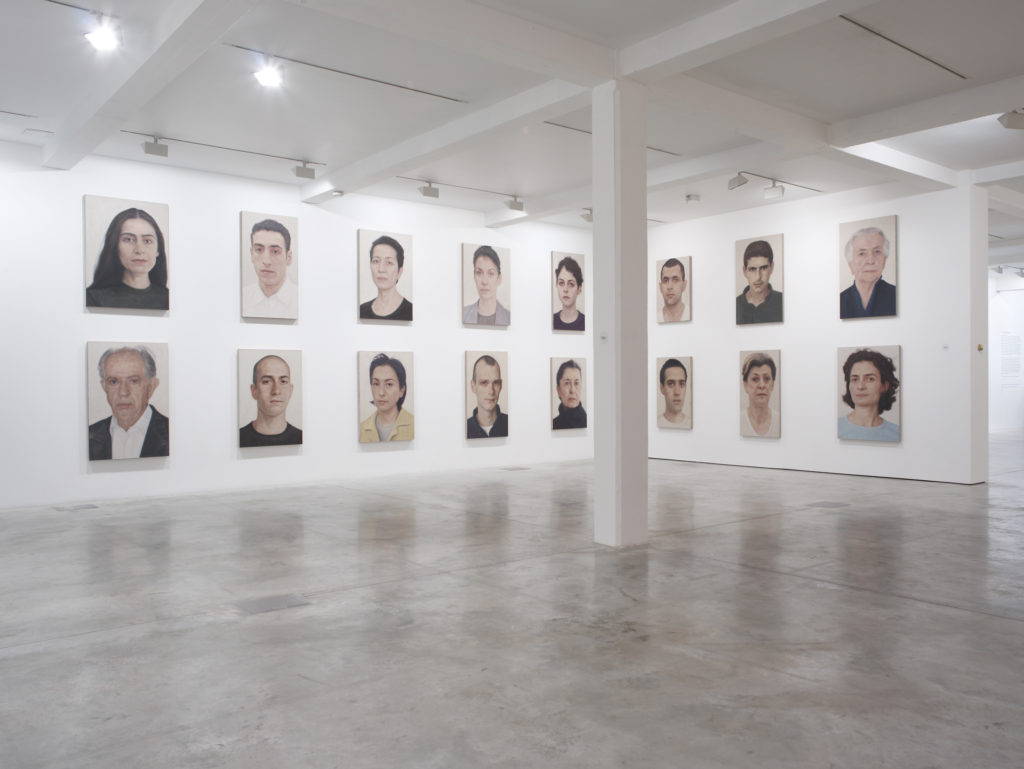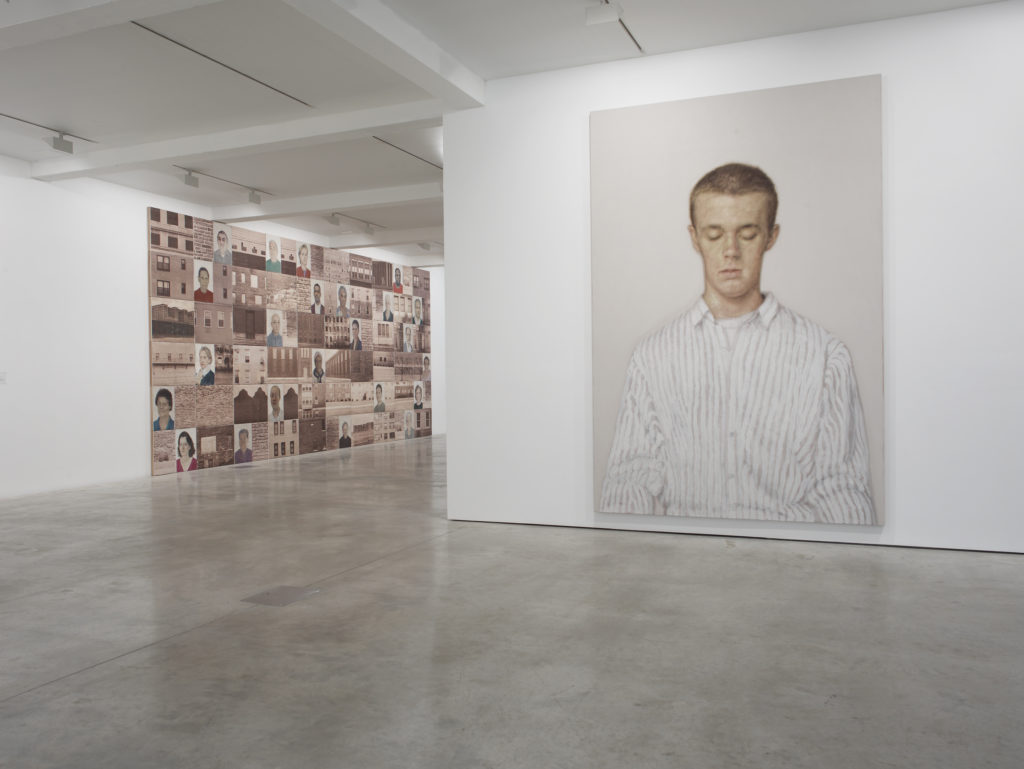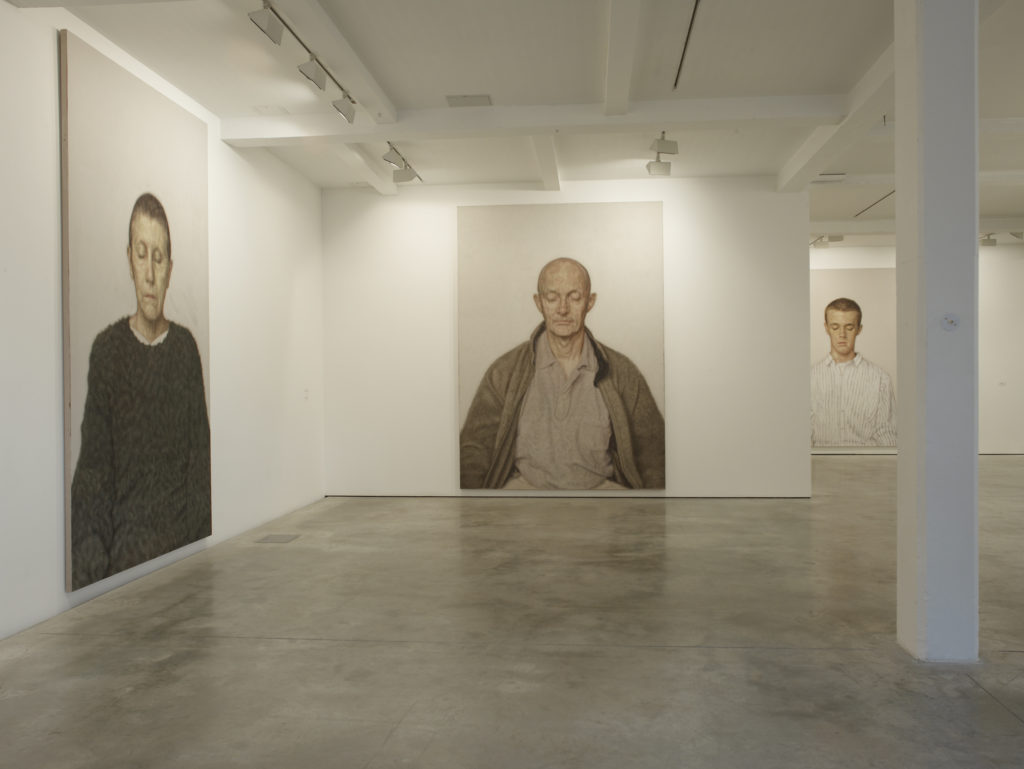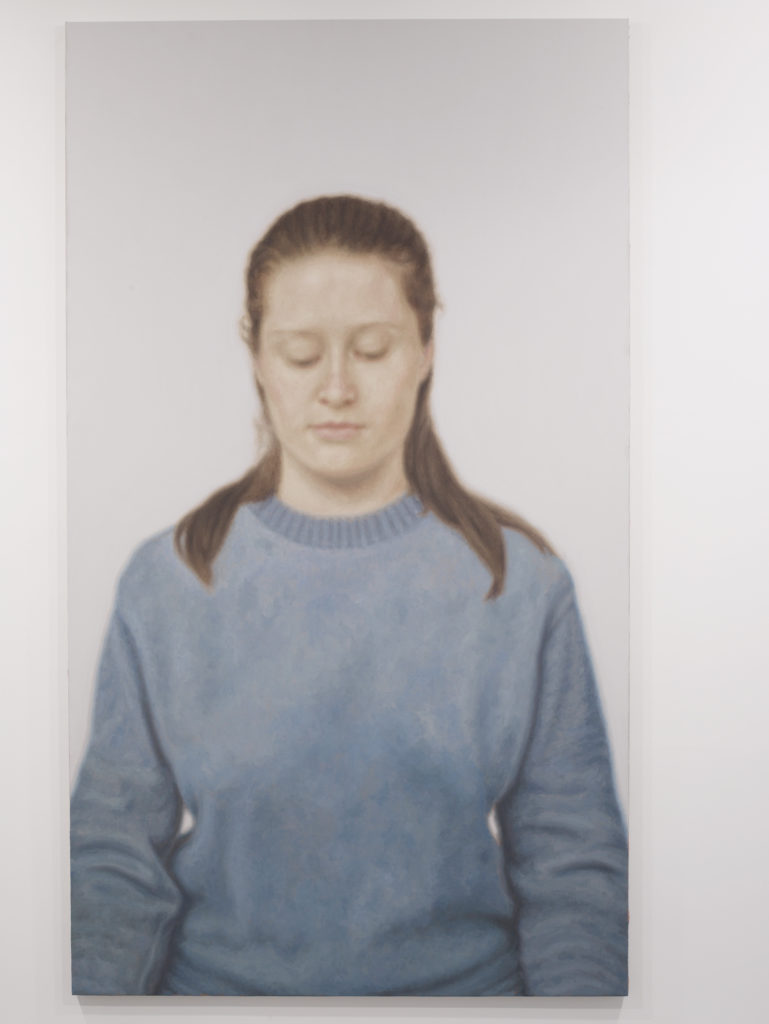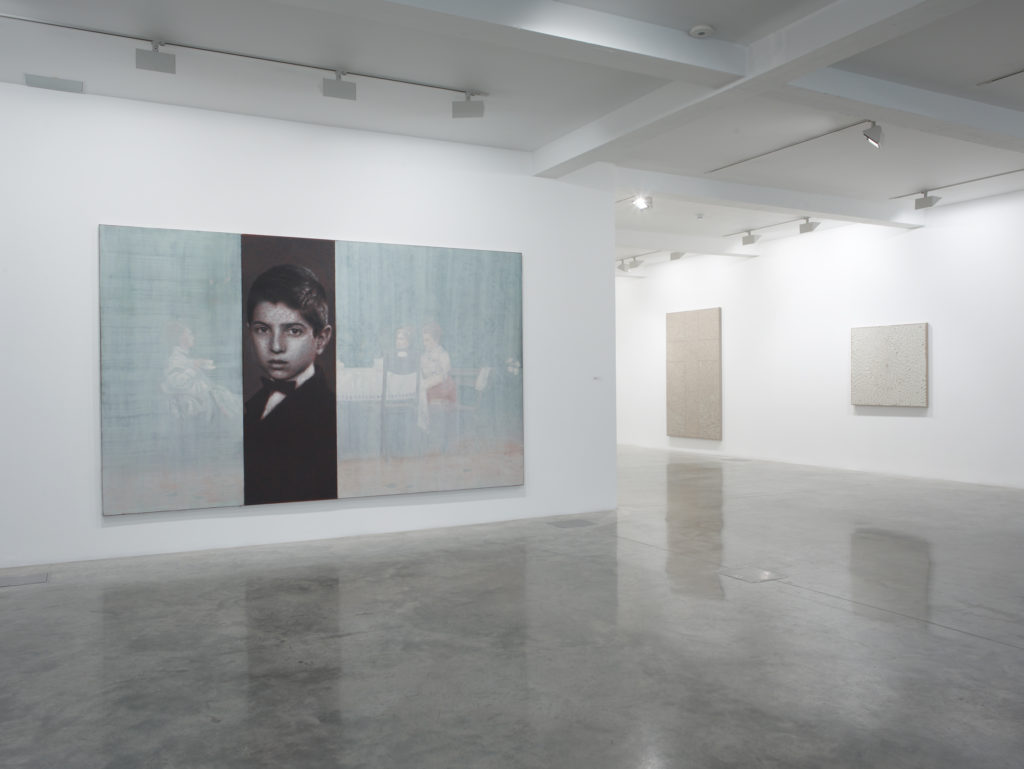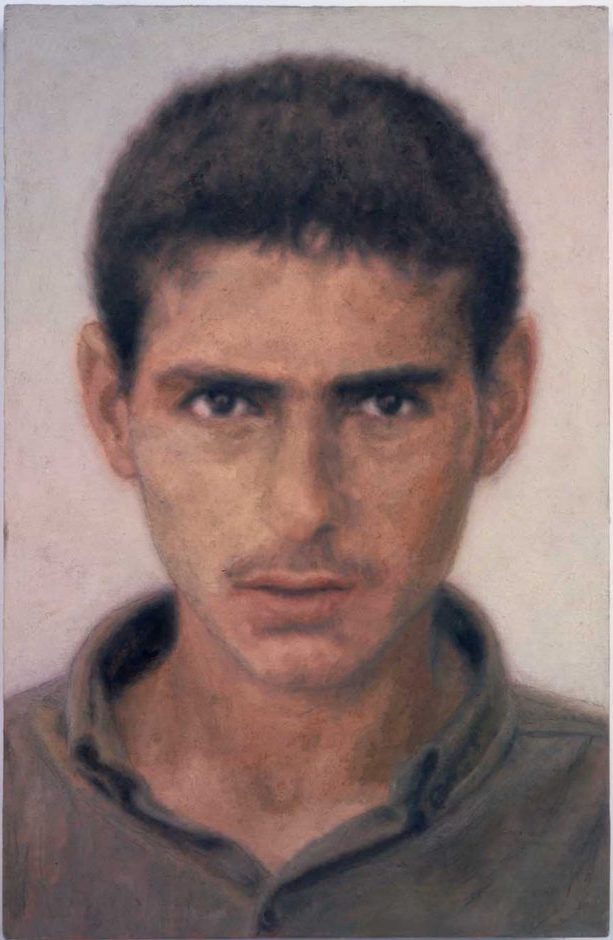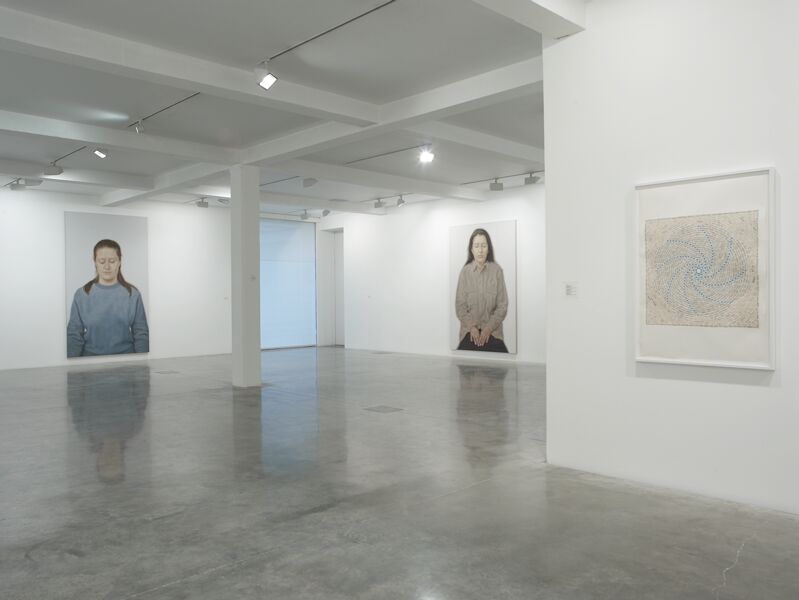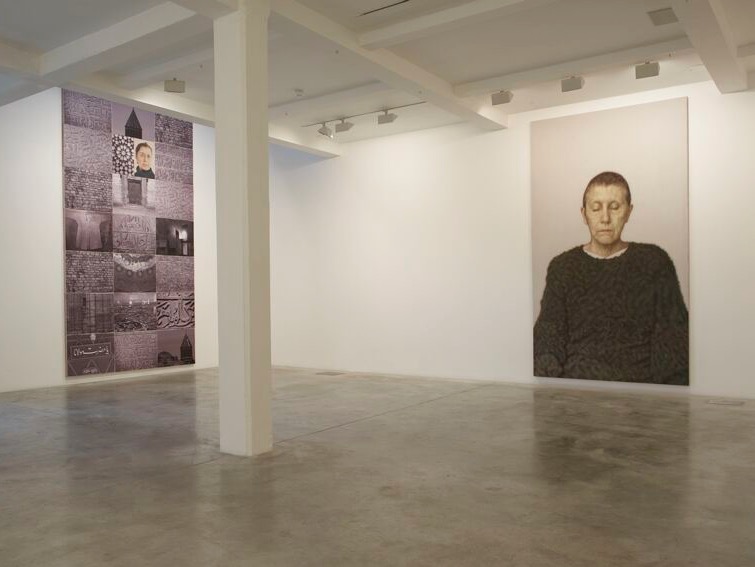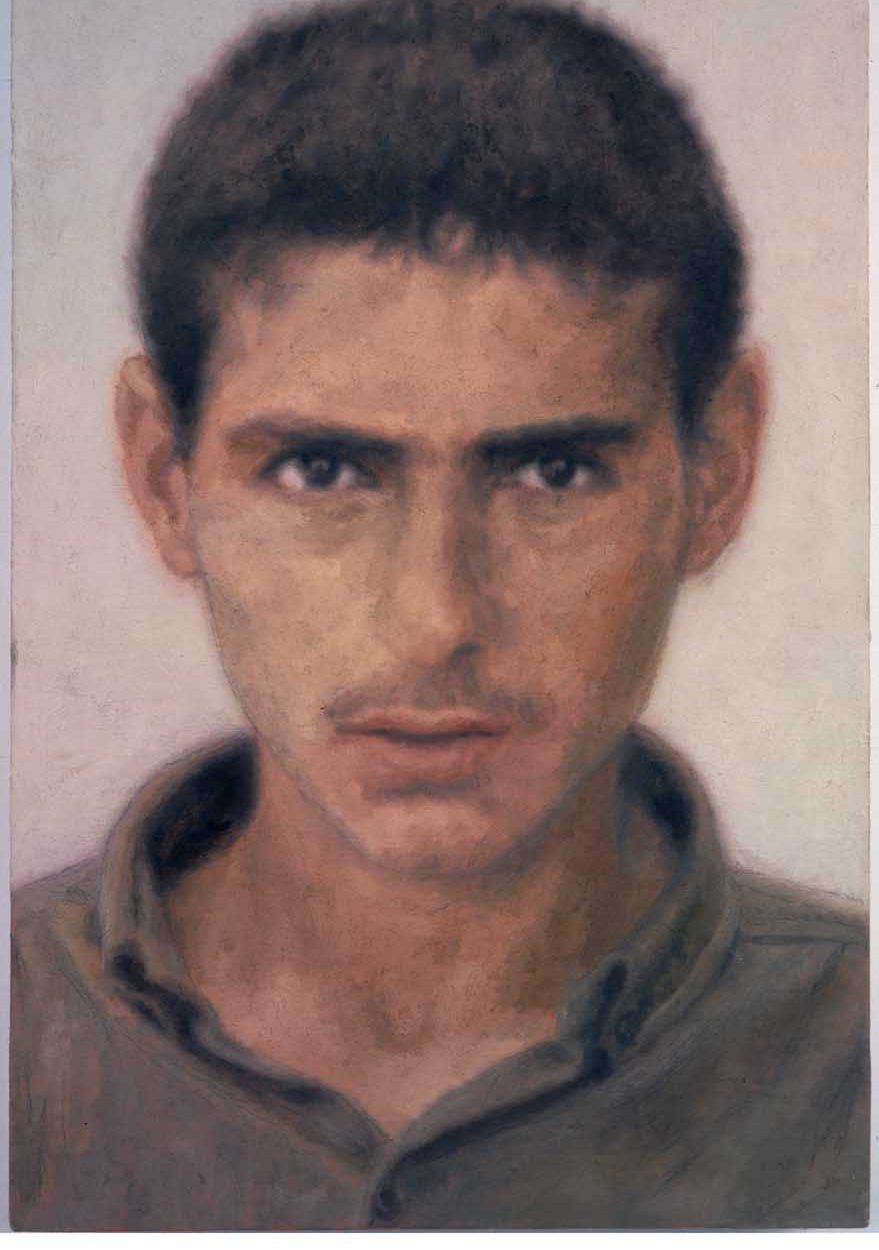
Y.Z. Kami: Endless Prayers
21 November 2008 - 11 February 2009
Parasol unit foundation for contemporary art is pleased to present the first UK solo exhibition of paintings, collages and photographs by the Persian born artist Y.Z. Kami. This diverse group of works has been created over a period of ten years and will be shown for the first time in this country.
The most striking works in this exhibition are undoubtedly Y.Z. Kami’s large and frontal painted portraits of ordinary people, each of whom entirely fills the canvas, often measuring three metres by two metres. Despite their imposing size and intense presence these portraits are neither flattering nor psychological; rather, they depict the subjects as they are, absorbed in their own world. This characteristic together with their fresco-like quality, executed using a special painting technique, endows the figures with a certain lack of materiality resembling that of Fayum portraits which were painted to accompany Egyptian mummies in their graves. In some of the paintings the eyes of the subjects are closed, but in others they are open and they gaze either inwardly or at a fixed point in the distance. No eye contact can be established by the viewer and each painted figure seems to carry its own distinct history within itself.
The same frontal perspective and detachment is prevalent in Y.Z. Kami’s monumental photographs of Islamic sites and architecture. For Y.Z. Kami, architecture, like human beings, speaks of its own history and at times he combines architecture with portraits of people to create some poignant works, such as Dry Land, 1994–2004 and Konya, 2007.
The exhibition will also feature Y.Z. Kami’s collages, entitled Endless Prayers. These works are made by gluing countless minute brick-shaped cut-outs from various books on to the canvas in circular arrangements or according to some Islamic architectural detailing of domes. The spiralling patterns are inspired by the whirling motions in the rituals of dervishes found in the Mawlavi order of Sufism, who profess that the act of spinning undoes the ego, cleanses them of the self and finds the sole unity of God. The Mawlavi order of Sufism was founded by the thirteenth century Persian poet, Rumi, whose work has played an important role inY.Z. Kami’s life and work since he began studying it as a young man. The work entitled Konya, 2007, was made in homage to the poet and bears the name of the town where Rumi spent the last years of his life, died there and has his mausoleum there.
An extensive events programme will run alongside this exhibition.
Supported by Arts council, England
Additional donations have been provided by Blackwall Green, the Gagosian Gallery and Fatima Maleki.


